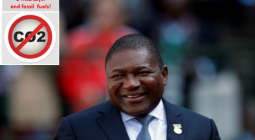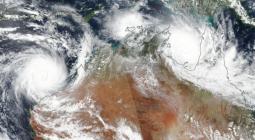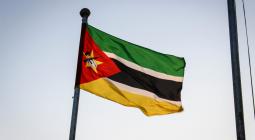UNHCR raises alarm over Mozambique’s “invisible” crisis as climate shocks worsen displacement
UNHCR, the UN Refugee Agency, is gravely concerned about the ongoing violence and insecurity in northern Mozambique. Conflict and displacement, compounded by extreme weather events has led to surging protection needs – physical, material, and legal – for hundreds of thousands of affected refugees, internally displaced people, and people from host communities.
Since the start of this year, Mozambique has been battered by five tropical storms and cyclones along its northern coastal areas. These have affected thousands of families, including refugees and people internally displaced by ongoing violence in the northern province of Cabo Delgado – illustrating once again how the effects of climate change interact with many of the root causes of displacement.
Most recently, on 11 March, Tropical Cyclone Gombe affected more than 736,000 people, including those in the Corrane site for internally displaced people and refugees in Maratane settlement. In Maratane, 80 per cent of shelters were damaged, and more than 27,000 refugees, asylum-seekers and host community members are still in urgent need of assistance.
Every region of the world is experiencing climate hazards. Cyclones and other storms are becoming more frequent and severe, floods are stronger, droughts are intensifying, and wildfires are becoming more devastating. Over 80 per cent of refugees and internally displaced people come from the most climate-vulnerable countries worldwide.
The growing impact of the climate crisis continues to be felt in Mozambique and is amplifying vulnerability, driving displacement, and making life harder for refugees, the internally displaced, and host communities.
Violence continues to blight the lives of around 783,000 people in the northern province of Cabo Delgado. In 2022 alone, an estimated 6,000 people have been recorded as newly displaced following a resurgence of conflict in Cabo Delgado and Niassa provinces. This violence has prevented UN agencies and other humanitarian partners from accessing people in need.
A UNHCR Senior Level Mission visited the country from 24 April to 1 May 2022 to assess how UNHCR and partners can scale up protection and assistance for the people affected by conflict and climate shocks in Mozambique. Mozambique faces these twin challenges in an “invisible” crisis while humanitarian operations are restricted by chronic underfunding.
Mission members saw the harsh damage done by Cyclone Gombe. Houses had just melted away. Schools, clinics and infrastructure had been badly damaged or destroyed.
UNHCR has been responding in areas affected by Gombe and other storms, including by providing shelter and household kits to affected communities, and conducting repairs to schools, health clinics and other key infrastructure.
In areas that can be accessed, UNHCR, other UN agencies and humanitarian partners continue to scale up protection and assistance activity and to emphasize how vital it is that we can continue to do so.
Along with the Government of Mozambique and its partners, UNHCR has provided legal assistance to 21,500 people from both displaced and host communities in Cabo Delgado and reached some 55,000 people with gender-based violence prevention and response awareness campaigns.
UNHCR is committed to supporting Mozambique’s government, local authorities and communities to protect and find solutions for refugees; to assisting Mozambique in addressing the impact of internal displacement; and to reinforcing the need for emergency preparedness and responding to extreme weather events.
The needs in Mozambique, already significant, continue to grow. However, the resources are not enough. To continue and scale up our operations in Mozambique, UNHCR requires US$36.7 million in 2022.
https://www.unhcr.org/




